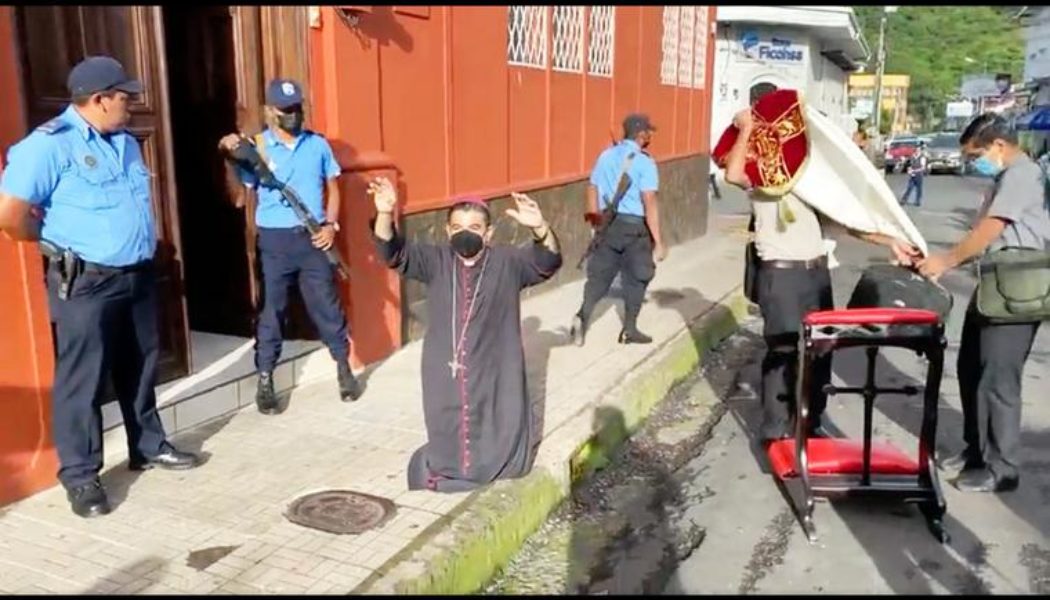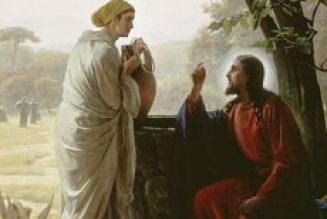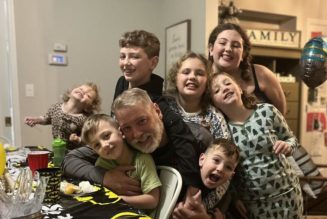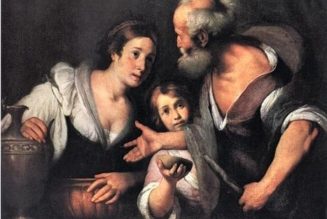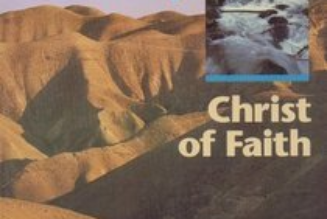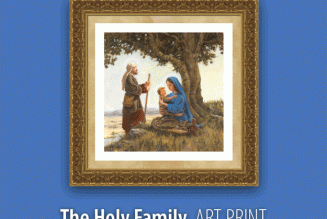
When should a global religious authority make its voice heard to defend the least among us? And when is silence, grounded in prayer, the more prudent course?
The Vatican has struggled with such questions throughout its diplomatic history.
During the past century, critics challenged Pope Pius XII’s nuanced response to Adolf Hitler’s aim of exterminating European Jewry. More recently, Pope Francis has been accused of ignoring the Chinese government’s attacks on religious and political freedoms, as the Vatican pursues a policy designed to unify the country’s divided Catholic community.
Closer to home, human-rights activists have flagged the Holy See’s muted public response to the steady erosion of democratic norms in Nicaragua, where President Daniel Ortega and his wife, Vice President Rosario Murillo, have suppressed every voice challenging their policies and thuggish tactics.
Last week, the Vatican formally responded to the fast-moving events in Nicaragua — the second time it has done so publicly since it protested the expulsion of the papal nuncio from the country in March.
In early August, the regime had ordered the house arrest of an outspoken bishop, and the standoff between the Church and the regime appeared to be reaching a breaking point. However, Nicaraguans who have pressed Francis to forcefully condemn Ortega’s actions found little comfort in the Holy See’s studiously neutral rhetoric that expressed concern for the situation but affirmed the need for “dialogue.” And that striking disconnect raises questions about the Vatican’s strategy, but also the conditions or threat level that should apply for the Pope to publicly exercise his moral authority with a forceful defense of religious freedom and other basic human rights.
Church-state tensions in the Central American country heated up in 2018, when Nicaraguans took to the streets to protest changes in the state pension system. The demonstrations provoked a deadly government crackdown.
At least 328 people died, and about 2,000 more were injured.
Catholic leaders and pastors have defended the rights of ordinary citizens, prompting government retaliation. Over the past four years, 190 churches have been attacked and desecrated, according to a new report, “Nicaragua: A Persecuted Church? (2018-2022),” compiled by attorney Martha Patricia Molina Montenegro, a member of the Pro-Transparency and Anti-Corruption Observatory.
The Vatican sought to deescalate the ensuing crisis, and the papal nuncio, Polish Archbishop Waldemar Sommertag, mediated talks between the Ortega government and opposition groups.
But that effort stalled. And in the months leading up to the 2021 presidential elections, the government imprisoned top opposition candidates, thus securing Ortega’s grip on power.
By March 2022, Ortega’s government expelled the papal nuncio, forcing him to leave the country, a bold move that caught the attention of human-rights watchdogs that had already documented the concerted attacks on the independent media and other civic institutions.
The U.S. Commission for International Religious Freedom, in its 2022 report, also singled out the four-year sentence of a Nicaraguan priest “on spurious charges” and new government policies forcing the closure of “Catholic-affiliated organizations.”
In July, Ortega ratcheted up the pressure on the Church, ordering the expulsion of Mother Teresa’s Missionaries of Charity.
The following month, the national police launched an investigation of Bishop Rolando Álvarez of Matagalpa. Now under house arrest, Bishop Álvarez has been accused of “using the communications media and social media” to “organize violent groups” that seek to destabilize the government.
And Catholic radio stations based in the Diocese of Matagalpa have been shuttered, with the government claiming that they lacked a valid operating license — a charge Bishop Álvarez strongly disputes.
The shocking events prompted Catholic bishops’ conferences in Latin America and Central America to express their solidarity with embattled Catholics in Nicaragua.
But for nearly two weeks, Pope Francis remained silent as the government’s campaign against the Church intensified. During this period, a group of 60 NGOs and civil associations in Nicaragua wrote to Pope Francis imploring him “not to leave us alone.”
Finally, during a special session of the OAS Permanent Council addressing the crisis in Nicaragua, Msgr. Juan Antonio Cruz Serrano, the Holy See’s permanent observer, publicly expressed the Vatican’s “concern” and confirmed its willingness to “collaborate with” those who see “dialogue as an indispensable instrument of democracy and guarantor of a more humane and fraternal civilization.”
In the Aug. 11 statement, the Holy See “appeal[ed] to the parties to find ways of understanding, based on respect and mutual trust, seeking above all the common good and peace.”
Some media outlets covered the Vatican intervention, but it didn’t have much traction. In part, that’s because the Holy See’s neutral language — possibly designed to allow it maximum freedom to resume its role as mediator between the Nicaraguan government and political opposition at a future date — had no appreciable impact on Ortega.
Just days later, the police shut down a large religious procession at the Managua cathedral, where thousands were attending a Marian congress entitled “Mary, Mother of Hope.” Anxiety over the plight of Bishop Álvarez inspired many Catholics to come together for prayer, spiritual encouragement and Holy Mass. But parish delegations from other parts of the country were barred by police from traveling to the capital for the congress.
The Pope has exhorted Catholic bishops and priests to have the smell of their sheep, and thus it is hard to explain the Vatican’s muted stance regarding Nicaragua. Sources with deep knowledge of the Holy See’s foreign-policy goals framed its OAS statement as an attempt to signal its closeness to the Nicaraguan people while avoiding provocative language that could be used by the regime to justify even more aggressive attacks on the Church. And some media reports claim the Vatican has been in talks with the regime to resolve the fate of Bishop Álvarez — with the regime pressing for his departure from the country. (Editor’s note: Since the writing of this editorial, ACI Prensa was able to confirm that the prelate was arrested by the Nicaraguan police and taken to an undisclosed location.)
At the same time, experts suggested that the absence of any forceful papal rhetoric may reflect Rome’s pessimistic view of Nicaragua’s future.
But that cost-benefit analysis is thin gruel for the Nicaraguans who have implored Francis to speak out on their behalf and now face the choice of complying with Ortega’s policies or fleeing their country for political asylum abroad.
Indeed, if for no other reason, Francis must condemn human-rights abuses in Nicaragua because his silence will be exploited by the regime to justify its actions and prop up Ortega’s moral standing in the corridors of power.
This summer, during an interview with the Register, Auxiliary Bishop Silvio José Báez Ortega of Managua, who was forced into exile in 2019, explained that the regime uses every opportunity to sow division and confusion among the faithful in this deeply Catholic country. He noted that the government evokes the name of Christ and couches its policies in religious language to tap the power and credibility of the faith.
Thus, Bishop Báez stressed the importance of calling out abuses to dispel confusion. And he made a second equally important point: Moral clarity discourages complacency in the face of injustice. The regime, he warned, “wants the people to consider this the new normal.”
As the crisis in Nicaragua deepens, and more Church leaders are arrested, forced into exile or intimidated into silence, the voice of this faithful Nicaraguan shepherd, and others like him, will only grow more powerful. But their prophetic witness cannot discount the value of Francis expressing his own moral judgment and closeness to people living on the peripheries of a distracted world.
The Holy Father, like his predecessors, has often endorsed the U.N. Declaration on Human Rights, urging his global audience to recognize and promote the inalienable dignity of the human person in season and out of season. When it comes to some issues of special concern, like exhorting Europeans to open their borders to migrants seeking a better life, Francis has followed this guidance in a deeply inspirational way. We need that same transformative witness now, as Nicaraguan Catholics and their shepherds prepare for the siege ahead.
Join Our Telegram Group : Salvation & Prosperity
